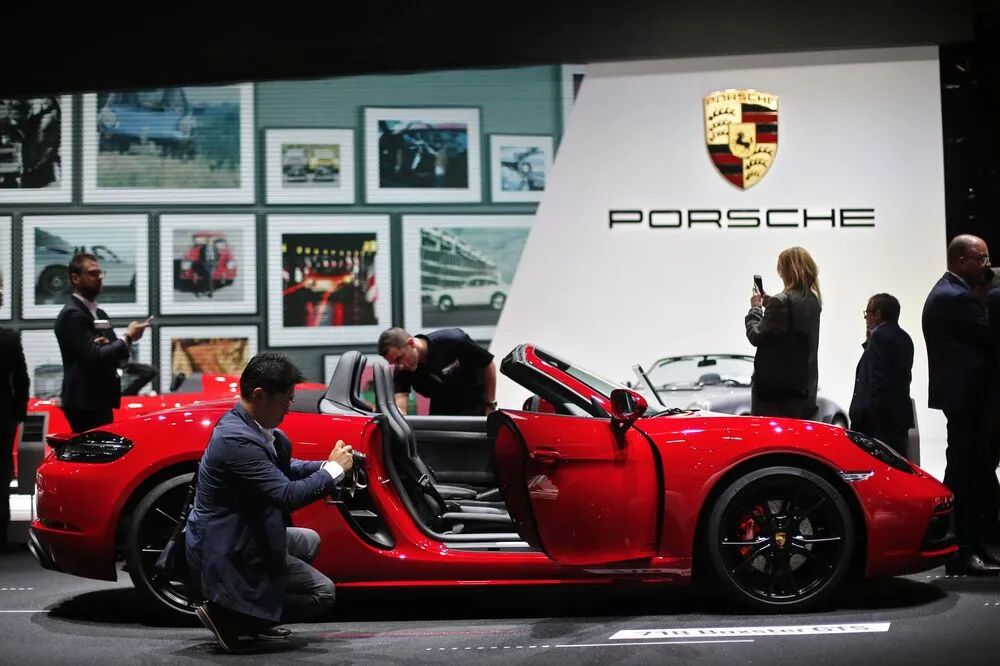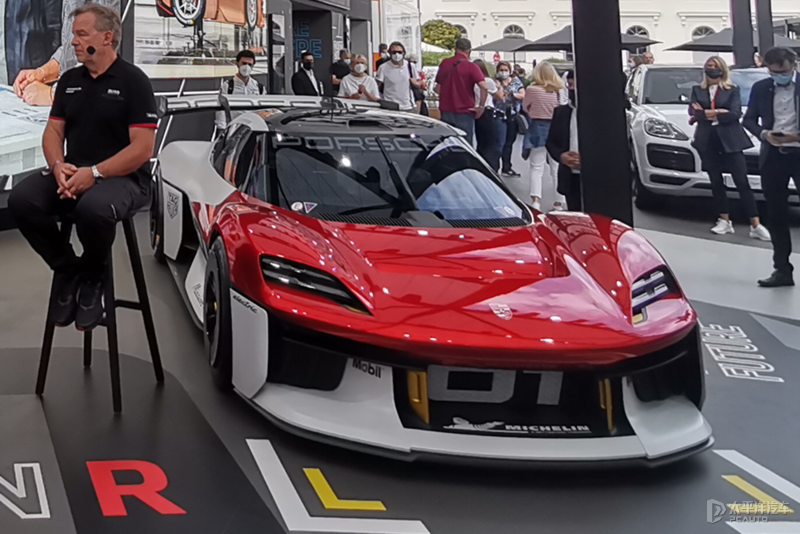Porsche Stumbles: The Dawn of a New Era for Luxury Cars
![]() 04/17 2025
04/17 2025
![]() 655
655
The global tariff war hasn't brought down the sky, but it has certainly taken a toll on the iconic luxury car brand Porsche.
As I penned this headline, I paused, contemplating whether the term was too harsh. I aim to avoid sensationalism. However, examining Porsche's sales figures for the first quarter of this year, I find it both accurate and non-exaggerated.
Porsche's deliveries in the Chinese market plummeted by 42% in the first quarter! Sales are heading towards halving, making it apt to say the sky has indeed fallen.
Looking back at data from previous years, the term 'crash' becomes even more fitting. Porsche's sales in China have been declining for four consecutive years, worsening annually and accelerating at an alarming rate.
Overall, the decline has gained momentum in recent years, speeding up rapidly.
From a game theory perspective, Porsche appears to have no resistance, suggesting the brand has lost its luster. While other luxury brands also struggle against the tide, they show some resilience. For instance, BBA engaged in last year's price war and fought back, sometimes witnessing sales rebounds, preventing steeper declines.
Porsche, on the other hand, is plummeting without any significant resistance.

In the first quarter of this year, Porsche sold only 9,471 vehicles, averaging just over 3,000 per month. This falls short even of a brazen imitation with a single model. Porsche's annual sales are projected not to exceed 50,000, a stark contrast to the 95,700 vehicles sold in China in 2021.
Ray Dalio, the founder of the world's largest hedge fund Bridgewater Associates, commented on the ongoing tariff war and the state of human society:
We are witnessing a typical systemic collapse of the global monetary, political, and geopolitical order. Such collapses occur once in a generation but have repeated multiple times under similar unsustainable conditions throughout history.
The disintegration of established forces, epitomized by Porsche, piece by piece, from the perspectives of industrial and technological change, exemplifies this systemic collapse.
01. Arrogant or Outdated?
The efficiency of the West and the United States pales in comparison to China's.
The United States once planned to impose a 60% tariff on China, citing a 60% lag in manufacturing efficiency. To compete, they resorted to tariffs as compensation.
Porsche wasn't late to the electric vehicle market; in fact, they entered relatively early. However, in retrospect, they failed to produce compelling products.
Upon launch, Porsche's pure electric models fell short of market expectations. Meanwhile, brands like Tesla and NIO captured market share through rapid iteration and intelligent features, directly challenging Porsche's mechanical performance advantage with high performance and cost-effectiveness.
Some Chinese electric luxury brands even directly target Porsche. For instance, Hyperion brands itself as the Porsche of the electric era, and Xiaomi directly imitated one of Porsche's models, with sales far surpassing the original Porsche version.
Whose fault is this? Without exaggeration, I would place the blame on a combination of factors, including Porsche's reluctance to adapt swiftly.
Porsche wasn't averse to change; they invested heavily in the Taycan, but the market response was dismal. Ultimately, it wasn't Porsche's fault alone but a reflection of the gap between Western and Eastern societies, akin to the current trade war.
With China's current industrial chain, manufacturing capabilities, and efficiency, there is truly no global competitor when it comes to innovation in the manufacturing industry.
This is embarrassing! A century-old brand like Porsche finds itself powerless against emerging Chinese luxury cars, with no immediate solution in sight – it's a predicament that seems unsolvable.
Another underlying reason is that electrification and intelligent technology are redefining luxury. What was once considered luxurious now lacks relevance. Only electric and intelligent features can truly embody luxury.
Building on this, Chinese brands have leveraged the combination of 'intelligence + cost-effectiveness' (such as lidar and urban NOA autonomous driving) to bring advanced technology to models priced around 300,000 yuan. Simultaneously, they've redefined the luxury experience with 'refrigerators, TVs, and big sofas,' reducing Porsche's mechanical performance advantage to mere 'emotional value.'
This is crucial. The secrets of Ferdinand Porsche, long kept under wraps, are about to be exposed.
Even more critical is that Porsche's executives haven't fully grasped the severity of the problem. They still cling to their pride, adhering to so-called traditional luxury values and maintaining brand height.
During the price war of the past two years, Porsche adhered to the strategy of 'quality over quantity,' refusing to lower prices or do so sufficiently. This stance quickly eroded Porsche's market flexibility, accelerating its decline.
02. Resistance Fading
In fact, the prices of other luxury cars have already hit rock bottom, with the BMW 5 Series dipping below 300,000 yuan.
Yet, the situation hasn't improved. In the first quarter of this year, BBA's sales fell by 11.4%, 25.9%, and 19.7%, respectively. American brands Cadillac and Lincoln fared even worse, with declines of 28.1% and 38.5%, respectively.
Objectively, the overall decline in luxury car sales is largely attributed to economic downturns leading to weaker demand. For instance, Porsche's sales also declined by 34% in the European market.
However, comparing these figures reveals that China's electrification process is more profound, accelerating the decline of traditional luxury cars. Last year, China's automotive market witnessed an electrification penetration rate exceeding 40%, and the market share of new forces soared from 8% in 2021 to 25%.
These new technologies, products, and concepts have shattered and reconstructed past forms of competition and even car-making experience. Porsche, as an import in the Chinese market, is struggling to keep pace.
Porsche's management in Germany might still believe China is the same as it was pre-pandemic. Most foreigners still hold perceptions rooted in the world before 2021, while in China, it feels like a decade has passed.

So, does Porsche still have hope for the future? I hold a pessimistic view. While there are hopes of economic recovery, price wars and shifting consumer preferences will continue to test the adaptability of traditional luxury brands.
Porsche's decline in the Chinese market stems from a confluence of factors: lagging electrification efforts, rigid competition strategies, and macroeconomic pressures. To address these challenges, Porsche must accelerate technological iteration, adjust pricing strategies, and enhance localized experiences. However, the slow-moving gentlemen of the Western world will take too long to catch up, and by then, it might be too late.
The foreseeable scenario is that Porsche will continue to fight and retreat, gradually losing market share until its brand premium is exhausted. It may eventually become a niche brand catering to those still nostalgic for fuel vehicles.
In summary, the world order is being reshaped, and so is the automotive landscape.







